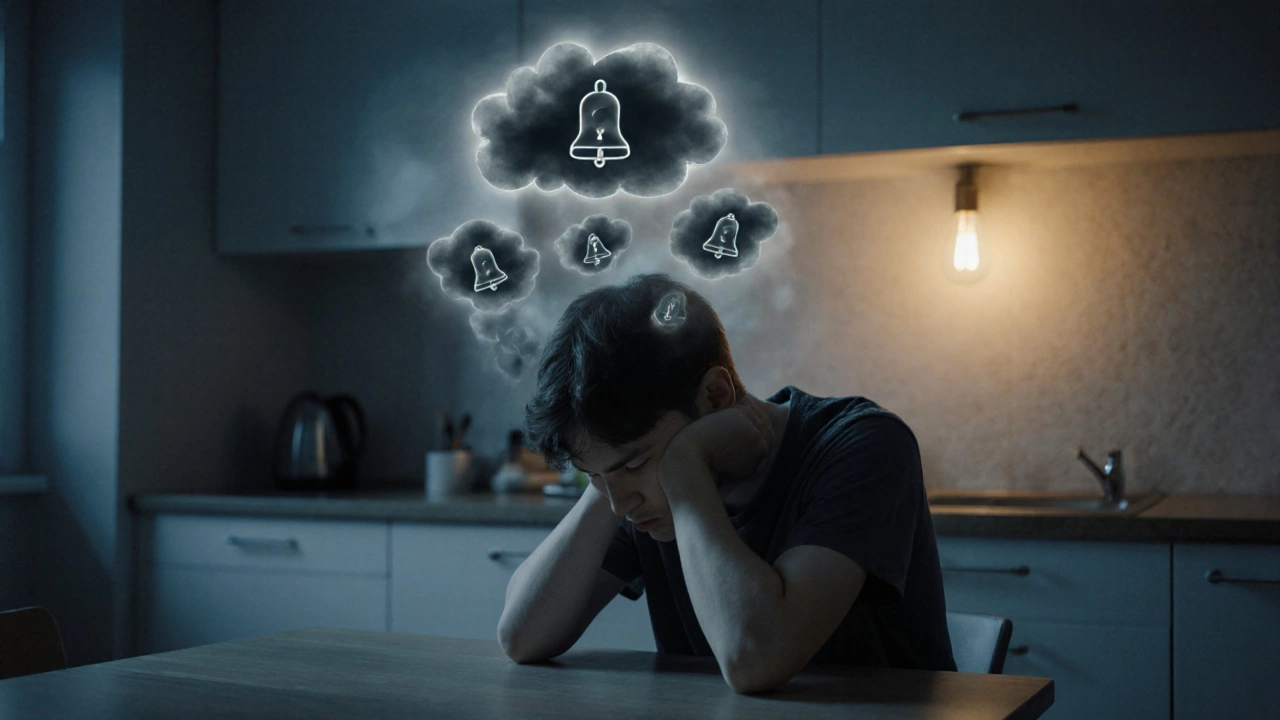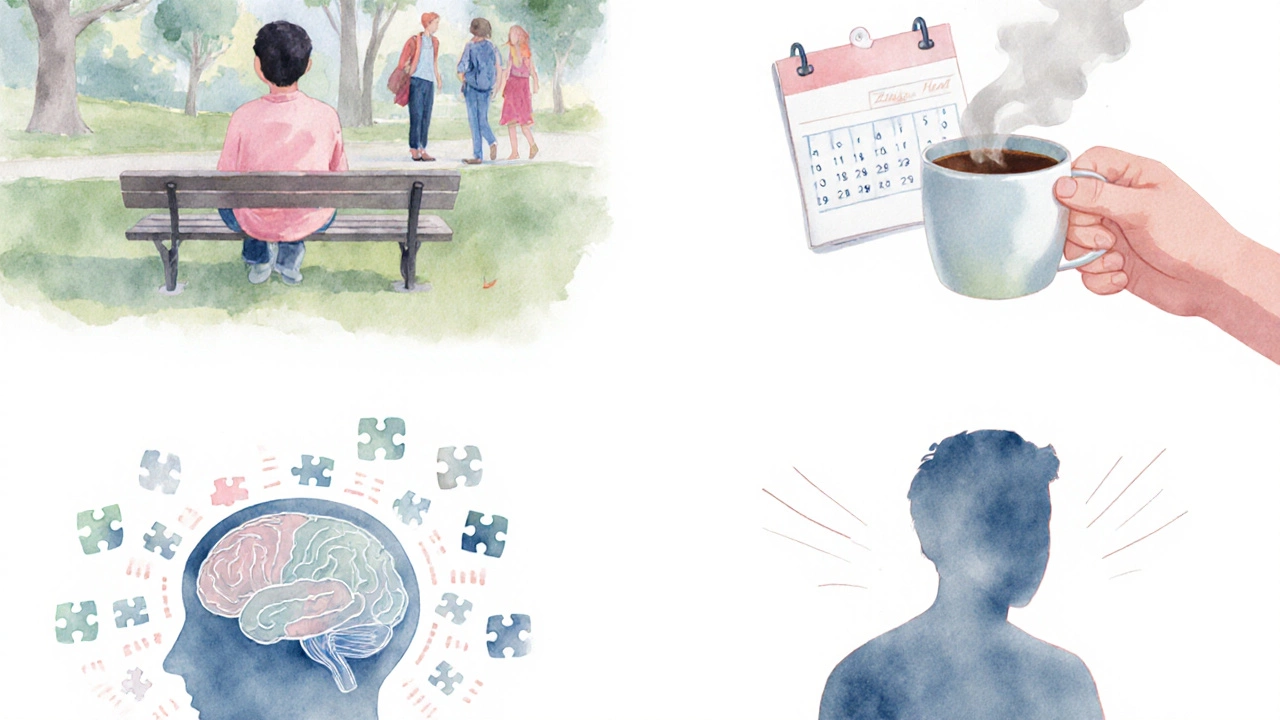How to Tell If You Need Therapy - Signs & Steps
 Oct, 10 2025
Oct, 10 2025
Therapy Readiness Self-Assessment
This tool helps identify potential indicators that therapy might be beneficial. It's not a diagnostic tool—please consult a healthcare professional for proper evaluation.
Your Assessment Results
Answer the questions above and click "Assess My Situation" to get personalized feedback.
When you start wondering whether Therapy is right for you, you’re already listening to your mind’s alarm bells. Therapy is a professional, evidence‑based process that helps people explore thoughts, feelings, and behaviors to improve mental well‑being.
Key Takeaways
- Persistent sadness, anxiety, or anger that interferes with daily life often signals it’s time for therapy.
- When coping strategies feel exhausted or cause more stress, a therapist can provide fresh tools.
- Physical symptoms like insomnia, headaches, or digestive issues can be linked to mental health struggles.
- Therapy isn’t only for crises; it’s also a proactive way to build resilience.
- Choosing the right therapist and therapy type makes the journey smoother.
1. Spotting the Red Flags
Not every bad day needs a professional appointment, but certain patterns suggest deeper issues. Below are common signals that mental health may be slipping:
- Emotional intensity: Feelings of sadness, irritability, or fear that linger for weeks.
- Behavioral changes: Withdrawing from friends, neglecting hobbies, or increased substance use.
- Cognitive fog: Trouble concentrating, making decisions, or memory lapses.
- Physical complaints: Unexplained aches, chronic fatigue, or sleep disturbances.
- Relationship strain: Constant conflicts, feeling misunderstood, or isolation.
These signs often overlap with diagnosed conditions like depression or anxiety. If you tick more than a couple of boxes, it’s worth exploring therapy.

2. Normal Stress vs. Clinical Need
Everyone feels stressed after a bad day at work or a family argument. The difference lies in duration, impact, and coping ability. Use this quick self‑check:
- Has the problem persisted for more than two months?
- Is it affecting work, school, or relationships?
- Do you feel stuck despite trying self‑help methods?
If you answer “yes” to at least two questions, professional help may be more effective than self‑care alone.
3. Understanding What Therapy Can Do
Therapy offers a structured environment where you can:
- Identify patterns that keep you stuck.
- Learn evidence‑based coping skills.
- Gain a non‑judgmental space to process emotions.
- Develop a personalized plan for long‑term wellbeing.
Think of it as a mental health gym: a trainer (the therapist) helps you build mental muscles you can use throughout life.
4. Picking the Right Therapy Type
Not every therapy fits every problem. Below is a snapshot of the most common approaches, their core focus, and typical duration.
| Therapy | Primary Goal | Typical Length | Best For |
|---|---|---|---|
| Cognitive‑Behavioral Therapy (CBT) | Change unhelpful thoughts & behaviors | 8‑20 weekly sessions | d>Depression, anxiety, phobias |
| Psychodynamic Therapy | Explore unconscious patterns | Monthly, 6‑12 months+ | Relationship issues, chronic sadness |
| Humanistic/Person‑Centered Counseling | Boost self‑acceptance | 10‑15 sessions | Low‑self‑esteem, life transitions |
| Dialectical Behavior Therapy (DBT) | Build emotional regulation skills | 12‑24 weeks + skills groups | Borderline personality, self‑harm |
When you’re unsure which fits, a brief intake call with a therapist can clarify the best match.
5. How to Start the Process
Taking the first step can feel daunting, but breaking it into tiny actions helps:
- Self‑assessment: Write down the signs you’ve noticed and how they affect you.
- Research: Look for licensed counselors in your area (Birmingham) or online platforms that meet UK standards (e.g., BACP, UKCP).
- Check insurance or NHS eligibility: Many NHS services offer free therapy after a GP referral; private options may be covered by health plans.
- Schedule a brief call: Ask about their approach, session length, and fees. A good therapist will be transparent.
- Commit to the first few sessions: Give the process a chance; many people feel improvement after 3‑4 meetings.
Remember, the goal isn’t to fix everything instantly-it’s to start a collaborative journey toward healthier thinking.

6. Common Misconceptions That Hold People Back
Even after spotting the signs, myths can stop you from seeking help:
- "Only ‘crazy’ people need therapy" - In reality, anyone facing persistent stress or emotional pain benefits.
- "Therapy is too expensive" - NHS referrals, sliding‑scale private practices, and online options make it affordable.
- "I’ll have to talk about my whole life" - Sessions focus on what you bring to the room, not an exhaustive biography.
- "Therapists will judge me" - Professional ethics require confidentiality and non‑judgment.
When you recognize these myths, you can consciously move past them.
7. When to Seek Immediate Help
If you experience any of the following, reach out right away:
- Suicidal thoughts or self‑harm urges.
- Hallucinations or severe paranoia.
- Sudden loss of contact with reality.
Call NHS 111, go to A&E, or dial emergency services (999) in the UK. Crisis helplines like Samaritans (116123) are also free and confidential.
Frequently Asked Questions
How long does therapy usually last?
Duration varies by approach and goal. Short‑term models like CBT often run 8‑20 weekly sessions, while deeper work such as psychodynamic therapy may continue for a year or more.
Can I switch therapists if I don’t feel a connection?
Absolutely. A therapeutic relationship needs trust. It’s common to have an initial consultation and change if the fit isn’t right.
Is therapy covered by the NHS?
Yes, if your GP refers you. Waiting times can be long, so many people also use private or online services alongside NHS care.
What if I can’t afford private therapy?
Look for low‑cost clinics, university training programs, or charities that offer sliding‑scale fees. Tele‑therapy platforms often have reduced rates.
Do I need a diagnosis before starting therapy?
No. Therapists can work with you based on the symptoms you describe, even without a formal psychiatric diagnosis.